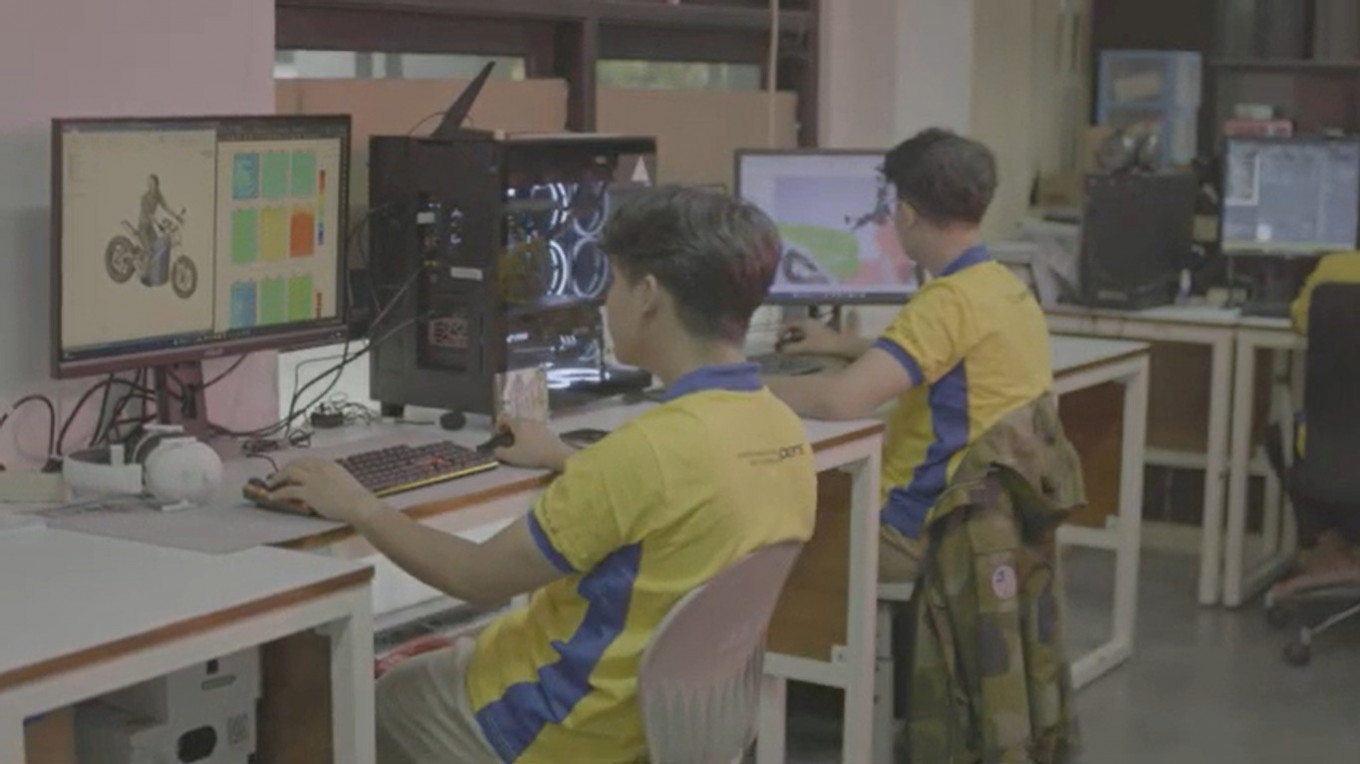News
Kedaireka Matching Fund Supports EV Innovation for National Independence
Front Row (The Jakarta Post) October 28, 2024 (PENS)
(PENS)
With the global commitment to achieving net-zero emissions (NZE) increasing, Indonesia is moving quickly to adopt electric vehicle (EV) technology. Supported by the 2023 Matching Fund program, Politeknik Elektronika Negeri Surabaya (PENS) is collaborating with VKTR Teknologi Mobilitas (VKTR) to develop components and software for EVs.
The program, conducted by the Center for Research and Innovation on Advanced Transportation Electrification (CReATE), aims to support Indonesia’s independence in core EV technologies.
"Creating an electric vehicle takes a long process. However, it is all aimed at Indonesia's independence," said Dadet Pramadihanto, a lecturer at the PENS and a recipient of the 2023 Matching Fund program.
Currently, many EVs, from electric motorcycles to airport apron buses, are still imported as completely built-up (CBU) or completely knocked-down (CKD) units. To reduce dependence on imports, local innovations are needed to increase the domestic component level (TKDN) requirements and meet the demands of the domestic market.
The PENS-VKTR partnership is supported by Rp2.73 billion in funding from the Kedaireka Matching Fund program, out of a total innovation value of more than Rp7 billion. This collaboration has produced several innovations with great potential to strengthen the national EV ecosystem.
Through intensive research, PENS and VKTR have successfully developed several technological innovations, including a swing arm and high-compatibility components for two-wheeled motorcycle conversion based on in-wheel drive systems. One of the standout innovations is a three-phase axial flux motor with one rotor and two stators, a technology that offers higher power efficiency. Additionally, they have developed an intelligent bus fleet management system designed to enhance the management and operation of electric apron buses at airports.
However, the innovations resulting from PENS' collaboration with VKTR not only focus on the efficiency and performance of EVs but also on environmental sustainability. With the adoption of EV technology, carbon emissions can be reduced, aligning with both global and national efforts to achieve the NZE target by 2060.
According to Dadet, who is also the head of CReATE, the process of achieving national EV technology independence is not easy. One of the biggest challenges is the readiness of manufacturing to mass-produce EV components domestically. Indonesia still does not have a manufacturer capable of producing electric motors on a large scale, although the country has made significant progress in technological innovation.
Nonetheless, Dadet is optimistic that collaboration between vocational campuses and industries, like the one with VKTR supported by the Matching Fund from the Education, Culture, Research, and Technology Ministry (Kemendikbudristek), will accelerate EV technology advancement in Indonesia. Since the collaboration began in 2021, PENS and VKTR have successfully patented 14 innovations that are ready for further development.
"Compared with other industrial nations, we are still behind because they have been conducting research for a long time. However, compared with countries on the same level as Indonesia, we are not far behind," he said.
The acceleration of EV electrification in Indonesia is a crucial step in achieving technological independence while also meeting environmental targets. The innovations produced by PENS and VKTR, from electric motorcycles to electric apron bus management systems, demonstrate that Indonesia has the capability to compete in the global EV industry.
Despite facing challenges, especially in manufacturing, strong collaboration and support from various parties will lead Indonesia toward a new era of environmentally friendly and sustainable transportation.
Source: www.thejakartapost.com
